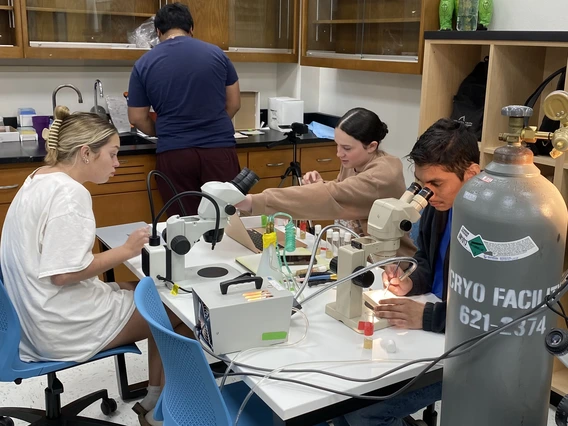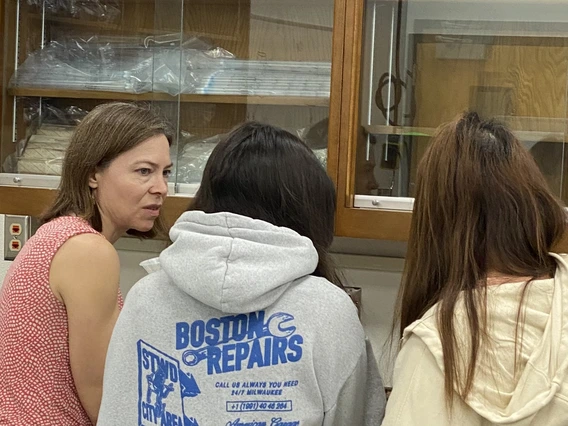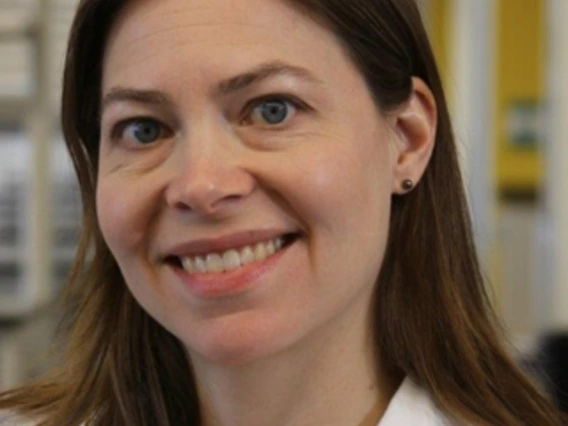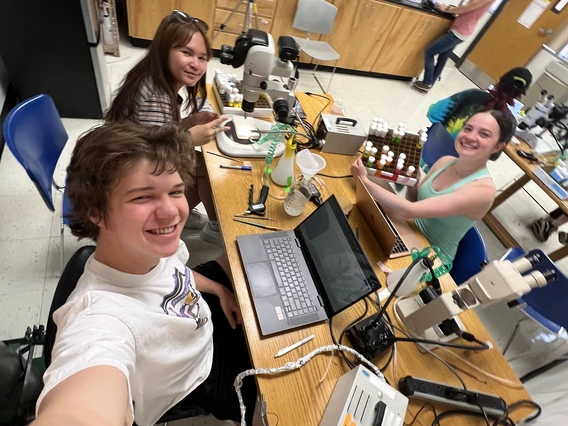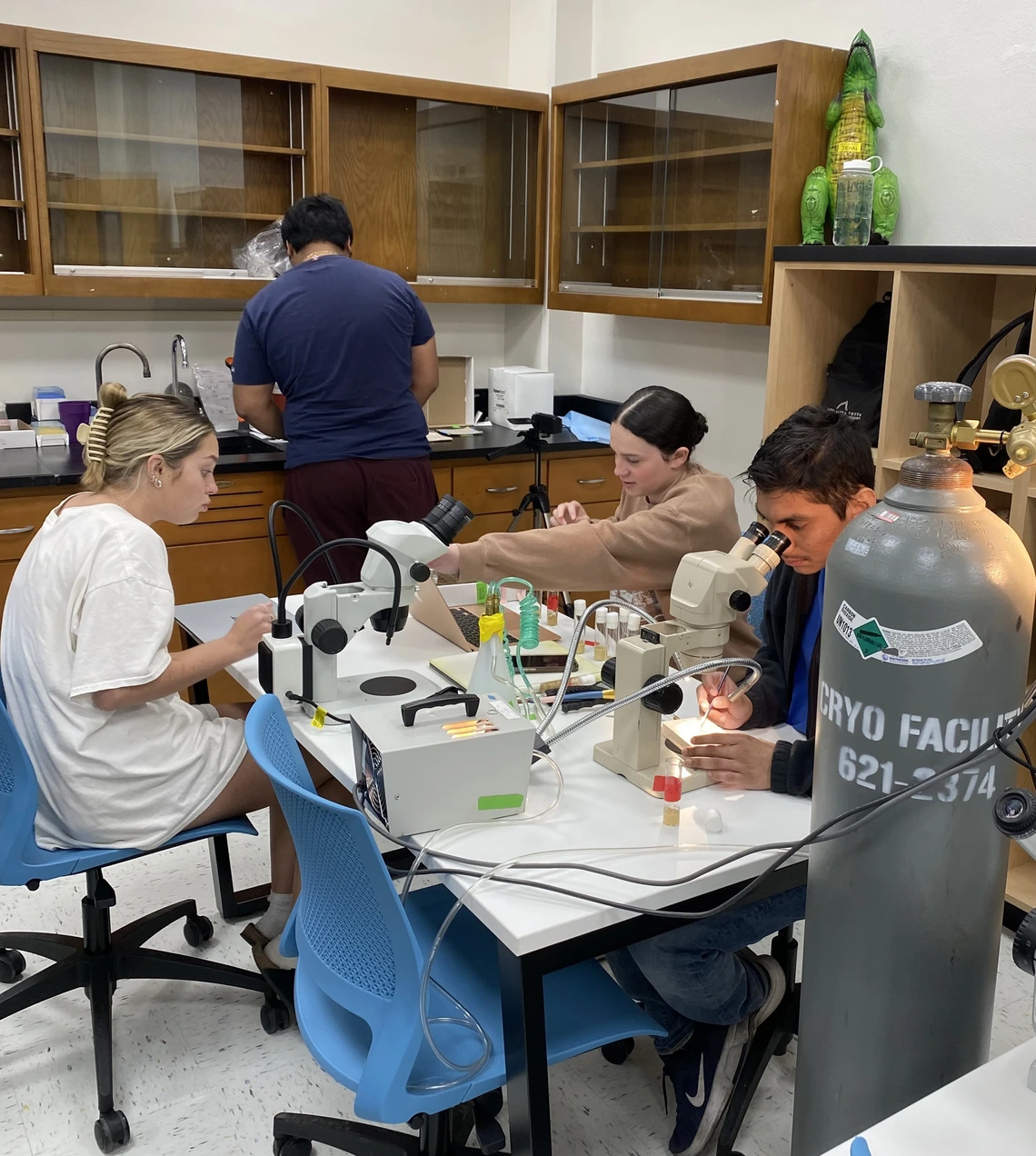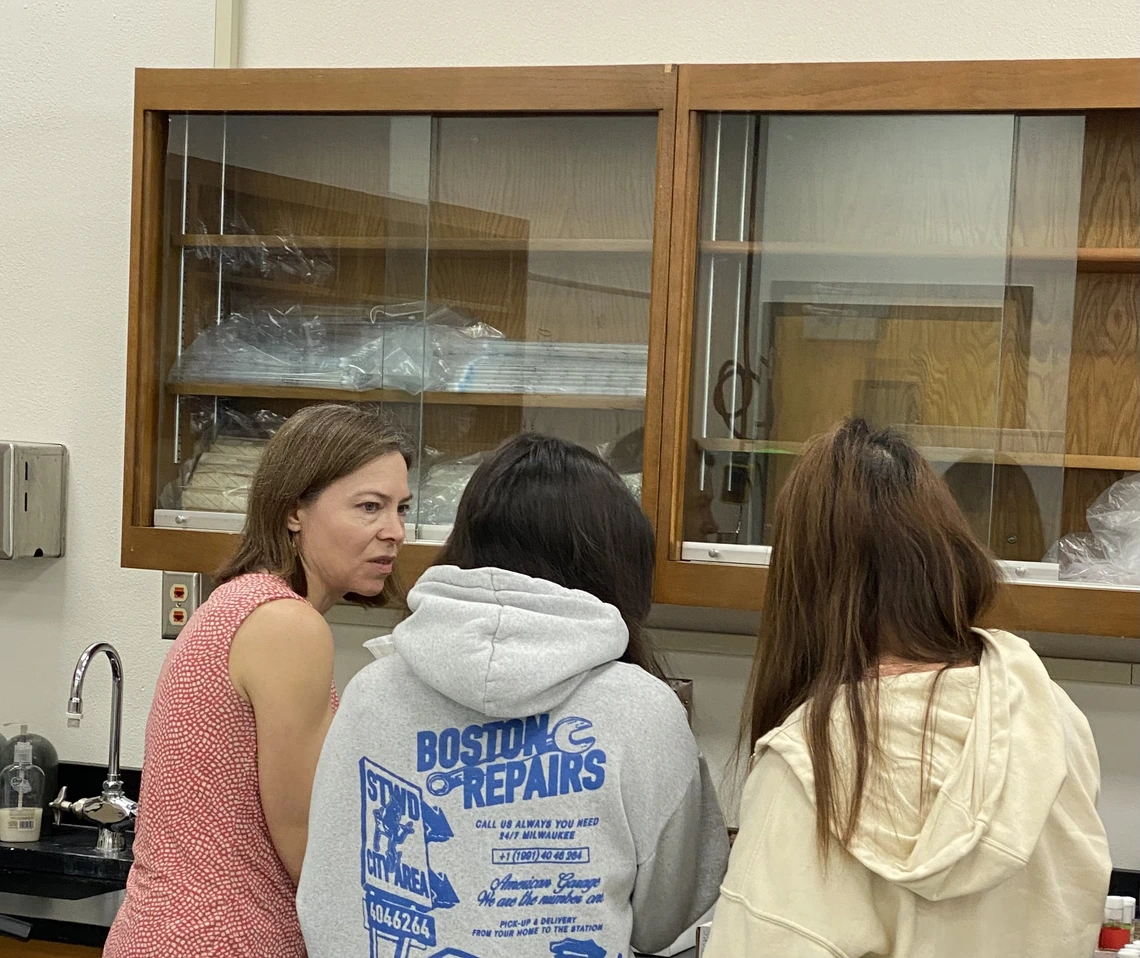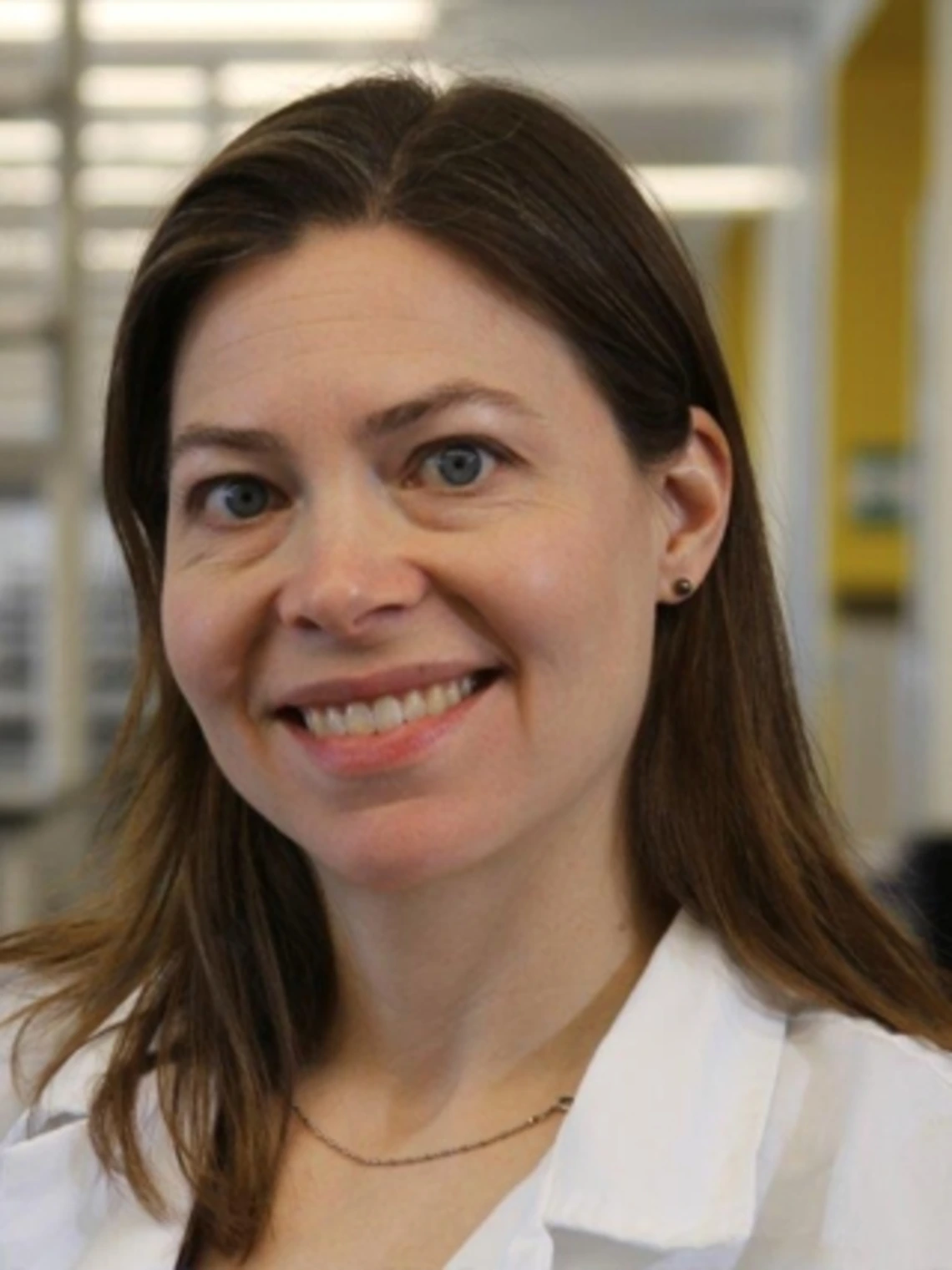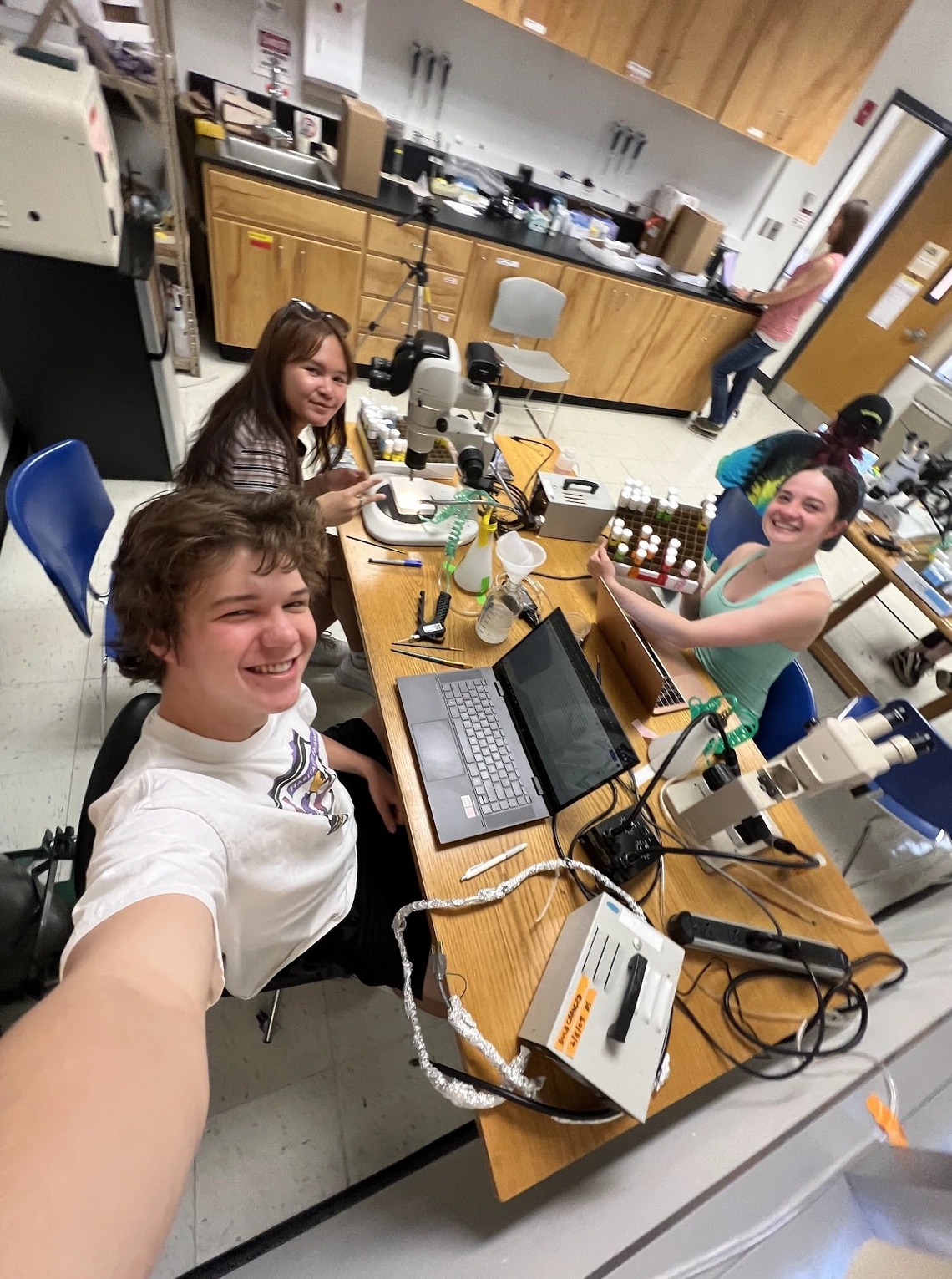As an Associate Professor from the Department of Neuroscience within the College of Science, Dr. Martha Bhattacharya’s CV is wildly impressive. Awards, publications, active funding and grants through the NIH, NSF, and the discovery of not one, but several “axon degeneration mediators,” which are vital in understanding ALS and Alzheimer’s disease. It is difficult to imagine that the person behind this CV was ever an undergraduate researcher who “didn’t know any better” and wrote, by hand, four letters to high-profile researchers at Harvard requesting to be work in their lab – before her first semester even started.
Dr. Bhattacharya may chalk it up to naïveté, but I see it as the product of her boundless curiosity and ambition. At astronomy camp, well before Martha was pressing stamps on letters to prominent Harvard researchers, Martha dreamed of becoming an astronaut. In high school, she was fascinated by a DNA extraction kit ordered for her during an internship in her high school Biology lab.
Between a chat with a neighbor home from college on the front porch of her parents’ house in Ohio, and the impending doom of a work assignment in the dining hall, Martha knew that she must get involved in a lab. A single mentor responded. Douglas A. Melton took a chance, and opened his lab to her. Martha stayed in that lab for four years, completing her honors thesis with the mentorship and support of dedicated graduate students and faculty. Years later, Dr. Bhattacharya would attend a birthday party for Olivia Kelly, the grad student who mentored her years earlier, and met her future husband. Martha reflected on this serendipity, "my entire life stems from this one faculty member taking me into their lab".
While Martha has always been deeply moved by science, her ability to communicate science has been an equally meaningful pursuit. When the opportunity to start a VIP-CURE became a possibility, this was a natural solution for some of her most pressing concerns. How can she realistically support more students interested in research? How can busy students get course credit and research experience? Since her VIP-CURE launched, Dr. Bhattacharya has witnessed the stunning impact of undergraduate research, “very few of them [students] drop out - drop out of science or drop out of U of A…everyone that's taken my class for the last 3 years, I think the retention of those students is something like 96%.”
Dr. Bhattacharya doesn’t point to the content when she witnesses this level of perseverance. She believes it’s due to the connections students create while working directly with her and with other students from all different years, “the community, I think, is really what keeps them in school.”
Martha is somehow even more than an impressive CV, it should also be noted she has also been dubbed a “cool mom” according to middle-schoolers. Anyone who is familiar with middle-schoolers knows that this is one of the rarest accomplishments. She earned this title working with 7th graders at Doolen Middle School, in TUSD. Students conducted an experiment and collected data reporting the number of fruit flies that experienced seizures after shaking them.
Dr. Martha Bhattacharya is paying forward the gift that undergraduate research gave to her. While we can’t guarantee that undergraduate research will find you a life partner, mentors like Martha create joyful, supportive communities in which belonging is found and success is a natural byproduct.


